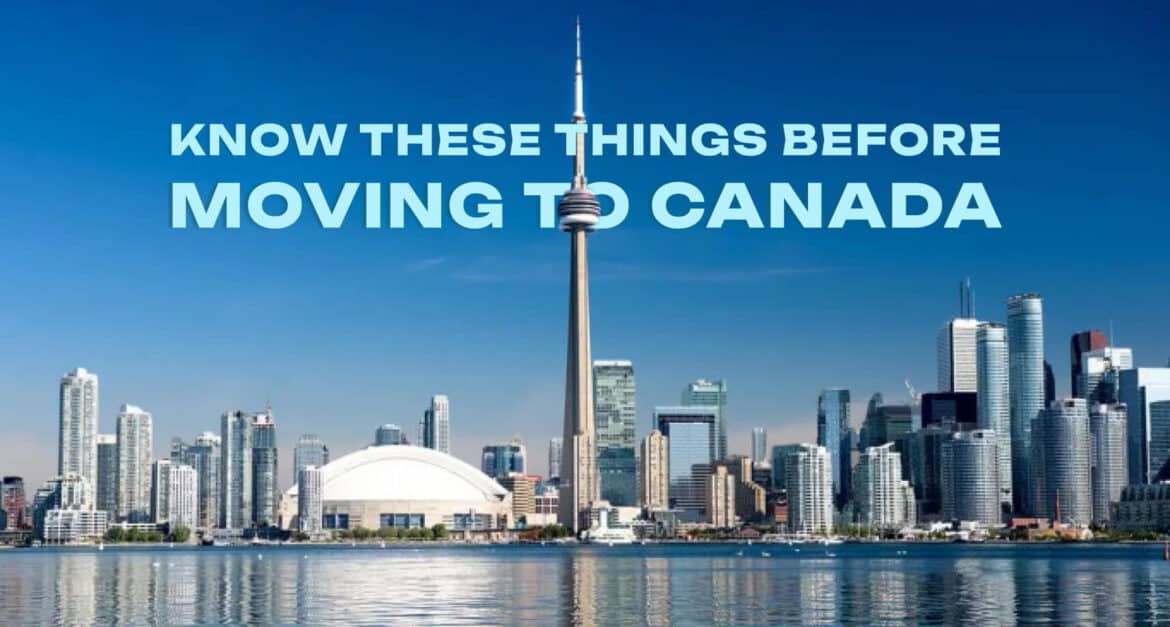
Moving from Florida to Canada is more than just a change in geography , it’s a major lifestyle shift, a logistical undertaking, and an opportunity for a fresh start. Whether you’re moving for work, family, or simply a change of pace, the process requires planning, paperwork, and the right partner to guide you through it. This comprehensive guide covers every aspect of moving from Florida to Canada, including costs, preparation tips, cultural changes, and how Safeway Moving can help you make the move with confidence.
Understanding the Cost of Moving from Florida to Canada
One of the most important questions to answer early on is: how much does it cost to move from Florida to Canada? The cost of an international move depends on several factors, including distance, weight of items, services used, and timing.
1. Full-Service Movers
Hiring a full-service mover for a long-distance international move can cost anywhere between $4,000 and $12,000, depending on the volume of your belongings and the level of service. Safeway Moving offers end-to-end moving services including packing, transportation, customs clearance, and delivery.
2. DIY Moving with Truck Rental
Renting a moving truck and handling the move yourself could lower your costs to $2,000–$4,500, but it also adds responsibility and labor. Plus, cross-border regulations and paperwork can be a major hurdle.
3. Shipping Containers
Portable storage containers like PODS or U-Pack can range from $3,000 to $7,000, offering a hybrid of affordability and convenience.
Keep in mind that these prices don't always include additional costs such as customs brokerage, insurance, or fuel surcharges , something that a professional moving service like Safeway Moving can help you navigate more efficiently.
Key Documentation and Border Regulations
When moving from Florida to Canada, your move involves crossing an international border, which means you’ll need to deal with customs regulations and documentation. Ensuring a smooth entry for both yourself and your belongings is critical.
1. Immigration Paperwork
Depending on your situation, you may need a work visa, permanent residency status, or student permit. Start the process early, as it can take several weeks or months.
2. Customs Declaration
You’ll need to complete a “Personal Effects Accounting Document” (Form B4E or BSF186) to list the goods you’re bringing with you.
3. Prohibited or Restricted Items
Canada has strict rules around firearms, certain foods, alcohol, and even some medications. Make sure you’re aware of these to avoid delays or confiscation.
Working with a company like Safeway Moving ensures you receive guidance on all necessary documentation and have help with clearing customs seamlessly.
Climate and Lifestyle Differences: What to Expect
If you’re used to Florida’s tropical climate, Canada’s seasonal shifts can be a bit of a shock. While Florida boasts year-round warmth, most Canadian cities experience cold, snowy winters and temperate summers.
1. Weather Adjustment
Invest in proper winter gear and prepare for a learning curve if you’re unfamiliar with snow and ice.
2. Cultural Nuances
Canada is diverse, polite, and socially progressive. You’ll find subtle cultural differences in humor, communication, and even customer service.
3. Healthcare
Canada’s public healthcare system is significantly different from the U.S. system. Learn how to enroll in your provincial plan and understand wait times and services.
Adapting to a new lifestyle takes time, but it’s also a chance to embrace something fresh. Safeway Moving’s team can help with pre-move consultations to prepare you for the lifestyle changes ahead.
Housing and Real Estate: Renting vs. Buying in Canada
Navigating the Canadian real estate market can be very different from Florida’s. Urban centers like Toronto and Vancouver have high property prices, while smaller towns and cities offer more affordable options.
1. Renting
A great option if you want flexibility. Average rent for a 1-bedroom apartment can range from $1,200 to $2,500 depending on the city.
2. Buying
Home prices vary drastically by region. Expect to pay over $800,000 in major cities and $400,000–$600,000 in mid-sized cities.
Understanding your budget and local market trends will help you make the right choice. Safeway Moving can refer you to local realtors who specialize in helping newcomers.
Education and Schools in Canada
If you’re moving with children, school enrollment and quality will be a major factor in your decision-making. Canada offers free public education and has a strong reputation globally.
1. Public vs. Private
Public schools are funded by taxes and are free, while private schools charge tuition.
2. Enrollment Process
You’ll need proof of residency, previous school records, and immunization records.
Most Canadian schools follow a semester system from September to June. Safeway Moving can help coordinate timing so your move aligns with the school calendar.
Why Choose Safeway Moving for Your Florida to Canada Relocation?
With so many moving parts, choosing a reliable partner can make or break your international move. Safeway Moving offers more than just transportation , we deliver peace of mind.
1. Packing and Unpacking Services
Save time and effort by letting our professional movers pack your home efficiently and securely.
2. Cross-Border Logistics
From customs paperwork to transit planning, we handle every detail so you can focus on your new beginning.
3. Transparent Pricing
No hidden fees, no surprise costs. We offer honest, upfront pricing tailored to your specific move.
We pride ourselves on helping families and businesses relocate across borders safely and stress-free. Call us today for a free quote tailored to your international move
Yes, depending on your purpose (work, study, family), you’ll need an appropriate visa or residency permit. Research the options or consult an immigration lawyer.
The physical move takes about 1–2 weeks, but the preparation process — including documents and planning — should begin 2–3 months in advance.
Yes, but it must meet Canadian safety and emissions standards. Import duties may apply. You’ll also need to register it with Canadian authorities.










